
exocast
exocast
The exoplanet podcast
- 41 minutes 2 secondsExocast-76b: Exoplanet Interiors with Professor Caroline Dorn
The Exocast team are joined on this episode by exoplanetary interior investigator Professor Caroline Dorn. Caroline started her career in Earth sciences and geophysics, studying for her PhD aquifer systems at the University of Lausanne, before switching her focus to the interiors of more distant worlds in 2013 with postdoctoral fellowships at the University of Bern and Zurich. As of April 2023, Caroline is an Assistant Professor for exoplanet science at ETH Zürich, and her newly established interdisciplinary exoplanet research group at the Institute for Particle Physics and Astrophysics is also part of the Center of Origin and Prevalence of Life. Caroline outlines what we can learn about the interior structure of rocky exoplanets from mass and radius measurements, as well as how these planets may form and evolve over time and whether plate tectonics is necessary for sustaining an atmosphere and for habitability. As always, Caroline also adds another interesting exoplanet to our growing list of Adopted Planets.
Do you have a question we didn’t ask? Join in the discussion in the comments below, and find us on Twitter, bluesky, and mastodon. You can also get your hands on Exocast merchandise at exocast.threadless.com
Exocast is edited by musician/composer Fergus Hall (https://www.fergushallmusic.com) and is supported by listener donations at buymeacoffee.com/exocast. We cannot make the show without your support and it is very much appreciated.
8 November 2024, 8:48 am - 40 minutes 58 secondsExocast-75b: Radial Velocity Surveys of Young Planets with Dr. Louise Nielsen
The Exocast team are joined on this episode by Dr. Louise Nielsen, a Danish astronomer who, after a batchelor’s degree at Niels Bohr Institute in Copenhagen, moved to the Geneva Observatory for a PhD focussing on radial velocity (RV) observations of exoplanets. Louise then completed postdoctoral fellowships at the University of Oxford and the European Southern Observatory (ESO) in Garching, before joining the Ludwig-Maximilians-Universität (LMU) in Munich as a staff astronomer in 2023. Louise discusses RV of young planets, follow-up of candidates found by TESS, the future of RV surveys, and she also outlines her early work with ground-based transit surveys including the now-ended WASP survey and NGTS. As is tradition, Louise also adds another interesting exoplanet to our growing list of Adopted Planets. Danish speakers should check out her astronomy podcast Stjerneklart.
Do you have a question we didn’t ask? Join in the discussion in the comments below, and find us on Twitter, bluesky, and mastodon. You can also get your hands on Exocast merchandise at exocast.threadless.com
Exocast is edited by musician/composer Fergus Hall (https://www.fergushallmusic.com) and is supported by listener donations at buymeacoffee.com/exocast. We cannot make the show without your support and it is very much appreciated.
21 October 2024, 9:06 am - 46 minutes 35 secondsExocast-74b: Exoplanet Characterisation and HST/JWST Mission Support with Dr. Néstor Espinoza
The Exocast team are joined on this show by Dr. Néstor Espinoza from the Space Telescope Science Institute (STScI) in Baltimore, USA. Néstor is an Assistant Astronomer and Mission Scientist for Hubble and JWST at STScI, where he focusses on transiting exoplanets and their stars. He also provides support for HST and JWST as Mission Scientist for Exoplanet Science in the Instrument Division, and Néstor speaks to the Exocast gang about balancing these distinct roles, as well as his interest in developing open-source modelling and analysis tools for exoplanet science. As always, Néstor also adds an exoplanet to our growing list of Adopted Planets; this one may be familiar to regular listeners…!
Do you have a question we didn’t ask? Join in the discussion in the comments below, and find us on Twitter, bluesky, and mastodon. You can also get your hands on Exocast merchandise at exocast.threadless.com
Exocast is edited by musician/composer Fergus Hall (https://www.fergushallmusic.com) and is supported by listener donations at buymeacoffee.com/exocast. We cannot make the show without your support and it is very much appreciated.
5 September 2024, 10:44 am - 41 minutes 36 secondsExocast-73b: Using Adaptive Optics to Find Exoplanets with Jules Fowler
The Exocast team are joined on this show by Jules Fowler, a NSF Graduate Research Fellow at the University of California, Santa Cruz, where they work to improve extreme adaptive optics technologies and seek the signatures of exoplanets in polarized light. Jules also shares insights gleaned from four years working as an analyst and science software engineer at the Space Telescope Science Institute (STScI), where they had the pleasure of collaborating with Exocast’s own Hannah Wakeford to discover transiting exoplanets. As always, listen to the show to find out which ‘planet’ (hint) Jules has adopted into our hall-of-fame this time…
Do you have a question we didn’t ask? Join in the discussion in the comments below, and find us on Twitter, bluesky, and mastodon. You can also get your hands on Exocast merchandise at exocast.threadless.com
Exocast is edited by musician/composer Fergus Hall (https://www.fergushallmusic.com) and is supported by listener donations at buymeacoffee.com/exocast. We cannot make the show without your support and it is very much appreciated.
5 August 2024, 11:17 am - 40 minutes 38 secondsExocast-72b: Directly Imaging Exoplanetary Motion with Dr Jason Wang
The Exocast team return from a short hiatus to be joined on this show by Dr Jason Wang from Northwestern University in Illinois. Jason is a direct imager, and gives us a quick overview of how we are able to find and characterise planets through direct imaging, as well as discussing the Gemini Planet Imager, 51 Eridani b, KPIC, VLT’s Gravity, and the making of the well-known, jaw-dropping animation of the planetary system around HR 8799. Listen to the show to find out which planet Jason has adopted into our hall-of-fame as Exocast’s ‘Adopt-a-planet’ returns.
Do you have a question we didn’t ask? Join in the discussion in the comments below, and find us on Twitter, bluesky, and mastodon. You can also get your hands on Exocast merchandise at exocast.threadless.com
Exocast is edited by musician/composer Fergus Hall (https://www.fergushallmusic.com) and is supported by listener donations at buymeacoffee.com/exocast. We cannot make the show without your support and it is very much appreciated.
 Movie of the HR 8799 planets orbiting their star. Image produced by Dr Jason Wang8 July 2024, 10:02 am
Movie of the HR 8799 planets orbiting their star. Image produced by Dr Jason Wang8 July 2024, 10:02 am - 32 minutes 50 secondsExocast-71c: Exoplanet News & the 100th episode
In this most excellent 100th episode of Exocast from the team we bring you the latest in exoplanet research and news.
Hannah and Andrew cover news from the TRAPPIST system. Hannah will dive into the JWST results that have come out about this very famous system of seven Earth-sized rocky planets. Two papers look to the mid-infrared to measure the light directly from the planets b and c in emission – finding that they likely do not have an atmosphere possibly stripped by their stars radiation. The first spectroscopic measurements of TRAPPIST show that the star itself is going to be the “star” of the show with stellar contamination dominating the data. But we remain optimistic! 5 more planets await their observations and there is much to learn about this small cool star.
Andrew covers a paper that discusses the feasibility of detecting some biosignatures from TRAPPIST-1 d and e using JWST. This “experimental sandbox” for astrobiology makes TRAPPIST the perfect place to start. The theoretical studies uses a climate model to ask the question: what could we see if it was there? The model looks for methane, carbon dioxide, oxygen, ozone, methyl chloride, and methyl mercaptan; with methane and carbon dioxide pair being the best combo to suggest something out of equilibrium possibly caused by life. But is the question we should be asking, is this the right system to look for life at all? – what do you think?
Hugh then takes us back to formation in a dramatic fashion with an astronomical mystery. A young star has been dimming and almost disappeared for over a year with variations in the starlight over nearly 1000 days. The question simply is: What is going on? It is almost always something to do with dust. This can be seen over different wavelengths showing the dust interacting with the light. But in this case the exciting new result is that about 3 years before the dimming happened, a bright event was seen in the system. What the team found through simulations suggest that there was a giant collision of planets in that system that created the bright event and then the debris field blocking the light. Space is really remarkable!
100 episodes is a huge milestone and as always Hugh, Hannah, and Andrew could not do this show without you! Thank you for listening.
Exocast is edited by Fergus Hall. You can help support Exocast and the team at BuyMeACoffee.com/exocast, and get yourself some Exocast merch at exocast.threadless.com
6 December 2023, 8:33 am - 36 minutes 14 secondsExocast-71b: Do All Planets Orbit Stars?
In this episode, Hannah, Hugh, and Andrew ask the question: Do all planets orbit stars?
Even though the vast majority of planets found so far are bound to a star, there have been detections of planetary-mass objects floating alone through space. Are these planets? How do these objects form, and how can we detect them? Is it possible that these free-floating objects could be considered ‘habitable’? The exocast gang tackle these tricky topics and other nomenclature-related debate surrounding this seemingly simple but deceptively complex question.
Do you have a question we didn’t ask? Join in the discussion in the comments below, and find us on Twitter. You can also get your hands on Exocast merchandise at exocast.threadless.com
Exocast is edited by musician/composer Fergus Hall (https://www.fergushallmusic.com) and is supported by listener donations at buymeacoffee.com/exocast. Each coffee costs $4 and donations over $15 get a shout-out on the show. We cannot make the show without your support and it is very much appreciated.
13 November 2023, 10:58 am - 41 minutes 18 secondsExocast-70c: Exoplanet news
Hugh, Hannah, & Andrew discuss a handful of interesting recent exoplanet papers from the past few months. We chat about the news coverage of K2-18b and the claims of biomarkers in that atmosphere, new discoveries, exciting atmospheres, and haze formation.
Hannah dives into the controversy of K2-18b and the announcement of DMS (a biomarker on Earth) detection amongst a methane dominated spectrum “Carbon-bearing Molecules in a Possible Hycean Atmosphere” by Madhusudhan et al.. The team discuss the responsibility we have as scientists to portray the statistics (in this case the lack of evidence to support the claim) to the press and how extraordinary claims require extraordinary care.
Hugh highlights a new discovery of “A close-in giant planet escapes engulfment by its star” by Hon et al.
And finally, Andrew explores “Planetary Scale Information Transmission in the Biosphere and Technosphere: Limits and Evolution” by Lingham et al.
Exocast is edited by Fergus Hall. Image credit: Artistic ilustration of planet K2-18b, its star K2-18 and the second planet K2-18. Credit: Alex Boersma
You can help support Exocast and the team at BuyMeACoffee.com/exocast, and get yourself some Exocast merch at exocast.threadless.com
15 October 2023, 8:59 am - 48 minutes 11 secondsExocast-70b: Dr. Max Günther talks transits, CHEOPS & chemistry in zero-g
This month the exocast team chat to exoplanetary astronomer Dr Maximillian Guenther. We talk about finding transiting exoplanets with TESS & NGTS, open-source transit modelling, flares from M-dwarf stars, the role of UV in prebiotic chemistry, chemical mixing experiments in zero-g aboard the vomit comet, connections between science and art, and his role as project scientist of the ESA CHEOPS mission. And, of course, hear which important and personally connected planetary system Max has adopted into our hall-of-fame.
Do you have a question we didn’t ask? Join in the discussion in the comments below, and find us on Twitter, bluesky, and mastodon. You can also get your hands on Exocast merchandise at exocast.threadless.com
Exocast is edited by musician/composer Fergus Hall (https://www.fergushallmusic.com) and is supported by listener donations at buymeacoffee.com/exocast. Each coffee costs $4 and donations over $15 get a shout out on the show. We cannot make the show without your support and it is very much appreciated.
2 October 2023, 4:43 pm - 46 minutes 35 secondsExocast-69b: Surviving Scientific Conferences
In this episode Andrew, Hannah, and Hugh discuss the art and science of organising, and attending, scientific conferences, with a particular focus on the recent Exoclimes VI meeting held in Exeter, UK, organised by Hannah and others in the exoplanet community. These meetings are crucial for the dissemination and communication of new results among the community and further afield, but they can be daunting to attend, and very stressful to organise. The team share their personal experiences with conference attendence and organising and consider the changing role and format of the science conference in modern academia.
Do you have a question we didn’t ask? Join in the discussion in the comments below, and find us on Twitter. You can also get your hands on Exocast merchandise at exocast.threadless.com
Exocast is edited by musician/composer Fergus Hall (https://www.fergushallmusic.com) and is supported by listener donations at buymeacoffee.com/exocast. Each coffee costs $4 and donations over $15 get a shout-out on the show. We cannot make the show without your support and it is very much appreciated.
16 August 2023, 4:55 pm - 35 minutes 53 secondsExocast-68c: Latest Exoplanet News
Hugh, Hannah, & Andrew discuss a handful of interesting recent exoplanet papers from the past few months. We chat all things Exoclimes VI held in Exeter in June 2023, new discoveries, exciting atmospheres, and haze formation.
Hugh highlights a new discovery of “A temperate Earth-sized planet [LP 791-18 d] with tidal heating transiting an M6 star” by Peterson et al.
Hannah dives into an escaping atmosphere covering “Giant Tidal Tails of Helium Escaping the Hot Jupiter HAT-P-32 b” by Zhang et al.
And finally, Andrew explores “Exoplanet Volatile Carbon Content as a Natural Pathway for Haze Formation” by Bergen et al.
26 July 2023, 4:25 pm - More Episodes? Get the App
Your feedback is valuable to us. Should you encounter any bugs, glitches, lack of functionality or other problems, please email us on [email protected] or join Moon.FM Telegram Group where you can talk directly to the dev team who are happy to answer any queries.
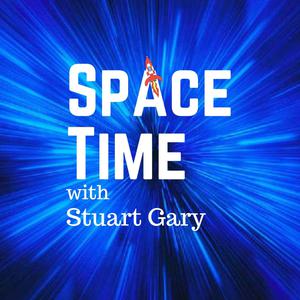 SpaceTime with Stuart Gary
SpaceTime with Stuart Gary
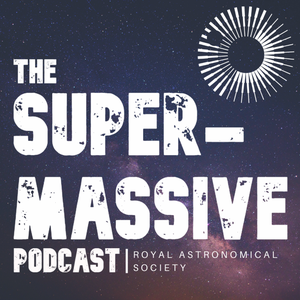 The Supermassive Podcast
The Supermassive Podcast
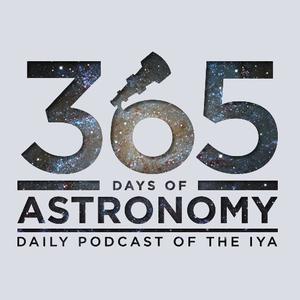 The 365 Days of Astronomy
The 365 Days of Astronomy
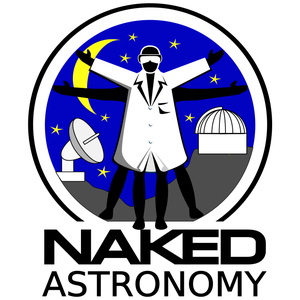 Naked Astronomy, from the Naked Scientists
Naked Astronomy, from the Naked Scientists
 Big Picture Science
Big Picture Science
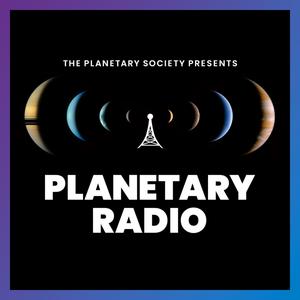 Planetary Radio: Space Exploration, Astronomy and Science
Planetary Radio: Space Exploration, Astronomy and Science